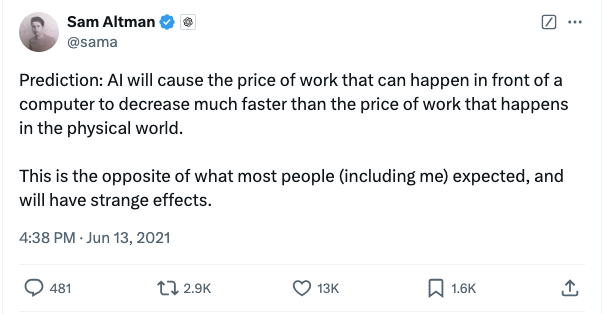Enthusing developers from diverse backgrounds is the key to avoiding tech failures
Wide participation in making rather than just consuming technology is important, here is why… Taking personal and organisational time and resources to encourage participation isn't always cheap or easy but it is the right thing to do.

Wide participation in making rather than just consuming technology is important, here is why…
Two things happened to me when I was a kid in the 70s and early 80s that changed the course of my life. Firstly an enthusiastic maths teacher championed computing at my school, persuading the governing body to buy a suite of Commodore PETs and making them available to the curious outside class. This was well before microcomputing was even on the horizon, much less the curriculum. His vision and enthusiasm fired my imagination.
Secondly, the owner of a local TV repair shop sold me an early microcomputer kit that he had started to assemble. He did this for pocket money, well below cost price. That gave me a practical outlet to experiment and turn curiosity into skills development.
If those two things had not happened, I’m pretty sure I would have ended up as a geologist in the now defunct coal mining industry in the Midlands where I grew up. Instead I ended up a few years later with a good CS degree and my ticket to participate in an industry which is shaping global humanity.
Pre-Internet, it was of course a different world. There was literally zero knowledge or accessibility for tech creation outside certain small communities. In many countries now, kids of primary age are exposed to technology that is pretty close to the bleeding edge but that is really just an artefact, side effect, of the increased pace of technology adoption into society. We’ve even started systematically involving them in making rather than just consuming tech but it always seems to be too little to late. In the UK, the legacy of delivering a “Computer Studies” curriculum for decades, creating nothing more exciting than a spreadsheet and letting girls think that STEM subjects are not for them mean we have a long way to go.
Giving individuals ample opportunity to contribute to the technology that shapes their world is often seen as a fluffy “nice to have” around equality of opportunity for the individual. Something it is hard to disagree with, but not an issue that is core to the future of our industry and even humanity.
I disagree with this. In every modern development from the motor car to online social networks, civil society simply can’t keep up with evolution of the technology in order to actively regulate against systematic bad outcomes. Tech industries develop what we feel is profitable and, as long as it has sufficient utility to a big enough minority of users, evil outcomes can be buried for a while and we can steamroller it through and build dependence. When wider society works out the downside it is already too late, governments are forced to play regulatory catch up against a backdrop of impacting a user base who are now dependent on it economically. These people vote so little latitude to go back the the drawing board exists. Just about the only area where government regulation tends to be effective is where established industries have a vested interest in stifling new innovation and rather ironically have been fairly good at “helping” government to be ahead of the tech curve.
If we can’t rely on “government” to pre-empt the mess that we create, tech needs democratise with wide participation that reflects the makeup of society generally in order to develop well rounded ethics and broadly good outcomes.
If the baseline is that we teach most in society to be consumers of technology with an elite of creators then we will all continue to be victims. If we provide access to making, so that there is a wide appreciation of the art of the possible then we set ourselves up to master technology and set an informed course to the future. At the very least we won’t end up with stuff like this:
Today, with a pervasive Internet and generally affordable hardware, it is the ideal time for the technology community to genuinely democratise. Even if you don’t care about social outcomes or sustainability because these aren’t business benefits, it makes consummate sense in a world where there are simply insufficient skilled developers coming from traditional backgrounds.
I regularly challenge my own company to look at how we can build an inclusive approach to developing technical skills and welcoming contributions from all backgrounds. We’ve worked with Founders and Coders graduates in the UK and overseas, actively support Django Girls and GirlsCode events locally and recently sponsored free community access tickets at CommCon. These are often hard to justify through the lens of commercial ROI and I sometimes feel the need to justify these critically to my organisation but, as an investment in our industry and better outcomes for society, I’m passionate that they are important.
I’m also heartened by conversations like this about StackOverflow, where an argument is being made that encouragement and inclusivity are as important as technical accuracy, and therefore arrogance and elitism have no place. StackOverflow has done as much as any other community to democratise software development, providing a freely accessible resource where any and every programming question on the planet can be asked and authoritatively answered. There is however an irony in that the tenor of some of the answers is anything but encouraging to the less experienced and it is good as an industry that we are starting to challenge this.
Taking personal and organisational time and resources to encourage participation isn’t always cheap or easy but it is the right thing to do. We are going in the right direction, but we still have a long way to go.




